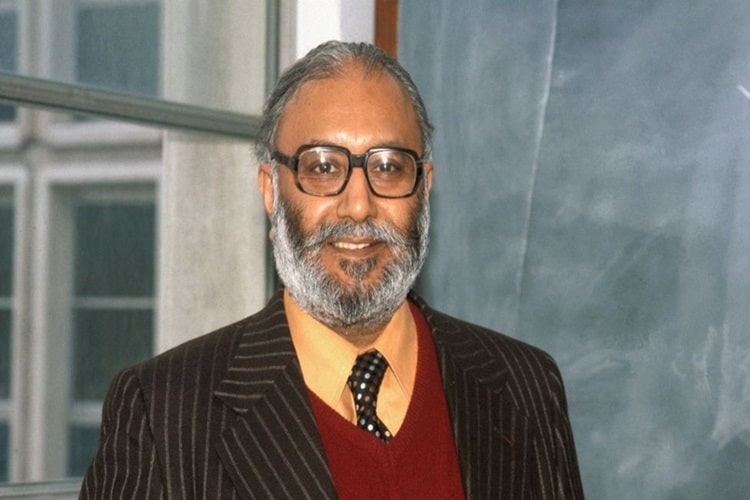Unmasking a Legend: The Story of Abdus Salam

Abdus Salam (29 January 1926 – 21 November 1996) was a Pakistani theoretical physicist who made significant contributions to the field of particle physics.
Life and Career
Abdus Salam was born on January 29, 1926, in Pakistan. His family belonged to a conservative Muslim background. Despite facing financial constraints, Salam’s father encouraged his education, recognizing his son’s academic potential. Abdus Salam pursued his education at Government College in Lahore, Pakistan, where he earned a bachelor’s degree in mathematics. He then proceeded to St. John’s College, University of Cambridge, where he completed a degree in Mathematics. Salam continued his studies at Cambridge, obtaining a Ph.D. in Theoretical Physics in 1951. His doctoral research focused on quantum electrodynamics, a field that would later earn him international acclaim.
Abdus Salam’s career was marked by groundbreaking contributions to theoretical physics, particularly in the realm of electroweak unification. In the 1960s, along with American physicists Sheldon Glashow and Steven Weinberg, Salam developed the electroweak theory, which unified electromagnetism with the weak nuclear force. This work led to the prediction of the existence of W and Z bosons, particles that were later discovered, affirming the theory’s validity.
Salam played a crucial role in establishing the International Centre for Theoretical Physics (ICTP) in Trieste, Italy, in 1964. The ICTP aimed to provide scientists from developing countries with opportunities for advanced research and education in theoretical physics.
For his groundbreaking contributions to physics, Abdus Salam, along with Glashow and Weinberg, was awarded the Nobel Prize in Physics in 1979. However, Salam’s contributions were not universally celebrated in Pakistan due to his Ahmadiyya Muslim faith, which led to religious discrimination and marginalization. Abdus Salam passed away on November 21, 1996, in Oxford, England.
Award and Legacy
Abdus Salam was awarded the Nobel Prize in Physics in 1979, along with Sheldon Glashow and Steven Weinberg, for their contributions to electroweak unification in particle physics. This recognition highlighted Salam’s role in the development of the electroweak theory, which unified electromagnetism with the weak nuclear force and predicted the existence of W and Z bosons. Despite the scientific significance of the award, Salam’s achievements faced controversy and challenges in his home country of Pakistan due to religious discrimination.
Salam’s work in developing the electroweak theory contributed to the unification of two of the fundamental forces in the Standard Model of particle physics. This theoretical framework has since been validated through experimental evidence, reinforcing its significance. Salam played a pivotal role in establishing the International Centre for Theoretical Physics (ICTP) in Trieste, Italy, in 1964. The ICTP aims to provide scientists from developing countries, particularly in Africa, Asia, and Latin America, with opportunities for advanced research and education in theoretical physics. The center continues to be a vital hub for scientific collaboration and capacity-building.
Salam’s leadership in the scientific community, both through his research and his efforts to promote international collaboration, has inspired subsequent generations of physicists. His commitment to advancing scientific knowledge and fostering global cooperation remains an influential part of his legacy.
Unfortunately, Abdus Salam also faced challenges and controversies, particularly in Pakistan, where discrimination against his Ahmadiyya Muslim faith overshadowed his scientific achievements. Despite this adversity, Salam’s contributions to physics are acknowledged worldwide.
Abdus Salam serves as an inspiration for scientists, particularly those from developing countries, showcasing the potential for groundbreaking contributions to theoretical physics irrespective of one’s background. His life story underscores the importance of overcoming social and cultural barriers in the pursuit of scientific knowledge.
Observer Voice is the one stop site for National, International news, Sports, Editor’s Choice, Art/culture contents, Quotes and much more. We also cover historical contents. Historical contents includes World History, Indian History, and what happened today. The website also covers Entertainment across the India and World.

